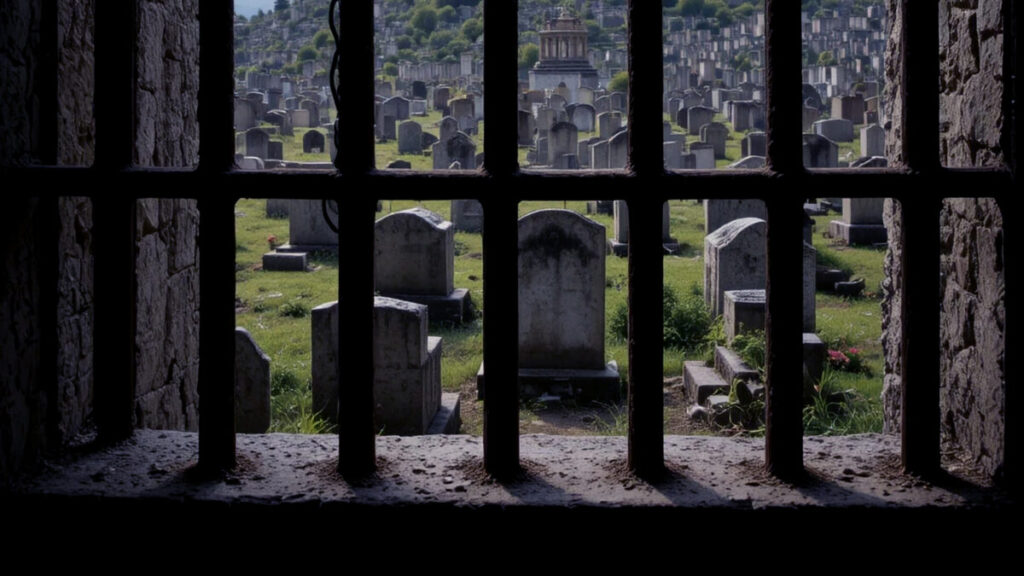By Lori Lee
NDG Contributing Writer
Since January, the U.S. has seen 16 deaths among detained immigrants, with Immigration and Customs Enforcement (ICE) reporting five of these deaths occurred in Florida.
Among the dead are immigrants from China, Mexico, Honduras, Vietnam, Canada, Colombia, Ukraine, the Dominican Republic, Haiti, and Cuba.
It’s the deadliest year in ICE detention since COVID, said Andrew Free, founder of Detention Kills, speaking at an October American Community Media briefing.
With increasing numbers of immigrants being detained and following regulations expanded in July, immigrants are less often being released on bond, the American Immigration Council reported. Increasingly held in detention and separated from healthcare services, their deaths are mainly due to communicable diseases and inadequate medical and mental health care, according to the American Civil Liberties Union (ACLU).

As detained immigrants go about their lives, they are treated much like criminals though most are not convicted of a crime, added Policy and Practice Counsel of American Immigration Lawyers Association Heather Hogan, speaking at the briefing. They wear orange jumpsuits and are shackled at the wrists and feet, often mocked and referred to as “bodies,” a term set aside for prisoners.
“The system is extremely dehumanizing,” said Hogan. It’s also hard on their psyches.
Detention alone, especially prolonged detention, can lead to mental health issues, as many try to heal from the previous trauma they thought they left behind. These are people whose governments have persecuted and imprisoned them, many of whom should be eligible for protections due to the circumstances they fled. Their conditions have only worsened under detention, said Hogan, especially considering the lack of mental health care available to them.
It is not surprising that two of the ten detainees who’ve died since January committed suicide, according to ICE reports. Those who attempt suicide are typically put in solitary confinement, said Hogan, which in itself is classified as torture by the U.N. The federal government, by its own statements, has admitted to using detention for this purpose, she said.
As arrests have increased, transparency has decreased, added Free, about 1200 people completely disappearing from the Florida Everglades facility rolls, The Poynter Institute reporting many, after enduring a certain amount of harsh treatment, chose to abandon immigration cases and be deported, though many lacked required court orders. Some were mysteriously transferred just prior to scheduled meetings with counsel, the Miami Herald reported. As Hogan suggested, moving them from facility to facility isolates them from family and their attorneys.
People are being held incommunicado, disappeared and cut off from any help, said Senior Counsel of Refugee Advocacy Yannick Gill. Many cells are placed down long, winding roads without airport access, while the procedural red tape makes approaching them nearly impossible.
Following a 2008 ACLU lawsuit, Free explained, ICE was required to report deaths of people in custody. Yet, this year, reports of additional deaths have some questioning ICE data, the Deportation Data Project uncovering at least five 2025 deaths the agency failed to disclose. The government knows when people die because they have to move the bodies, said Free. Yet, an intentional ignorance is imposed on us by our system, with political value for those who maintain it. The Investigative Workshop uncovered a similar pattern from 2018 to 2020, when fatalities were underreported by releasing sick detainees to hospitals to avoid them dying in custody.
“The true number of people dying in ICE custody is unknown, said Free. I don’t think anybody knows.”
The inconsistencies indicate a disregard for the rule of law, due process and human rights.
The VERA Institute indicates unofficial buildings have been repurposed as shadow facilities, which quietly bypass the normal, more transparent systems, Gill explained. You’ve got detentions on Fort Bliss, detentions at Angola, with little retrofitting to make the conditions appropriate for human habitation.
When people start dying in custody or taking their own lives, human rights are being violated, laws are being broken, and inhumane conditions exist, said Gill. Our reports cite cells that are unclean, asthma and maternal care going untreated, physical and psychological mistreatment, and denial of legal counsel. Members of Congress are also being denied access to these facilities despite being granted the power of oversight by the U.S. Constitution.
“From a human rights standpoint, it is a really treacherous moment, not just for the conditions that are leading to these deaths, which are preventable, but also any form of oversight,” he said.




